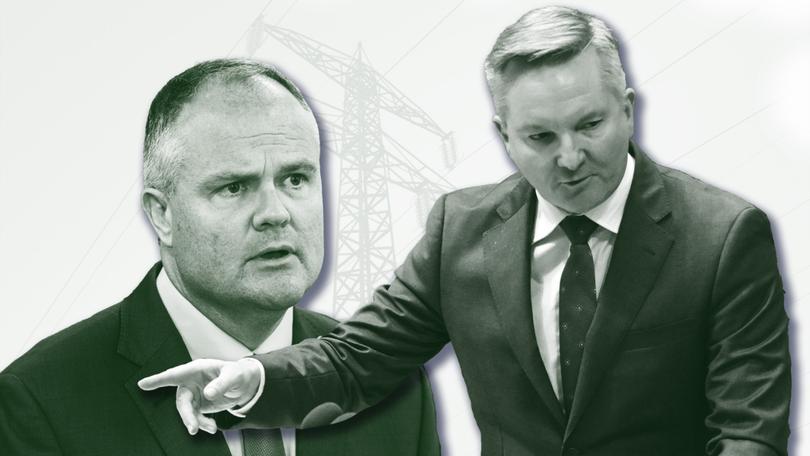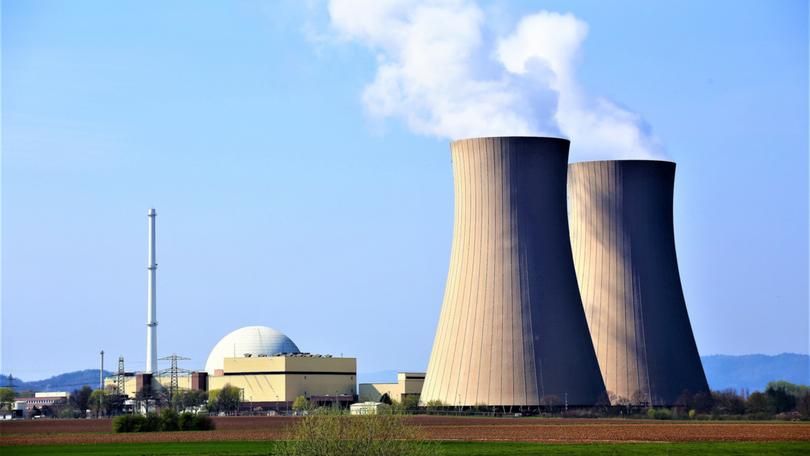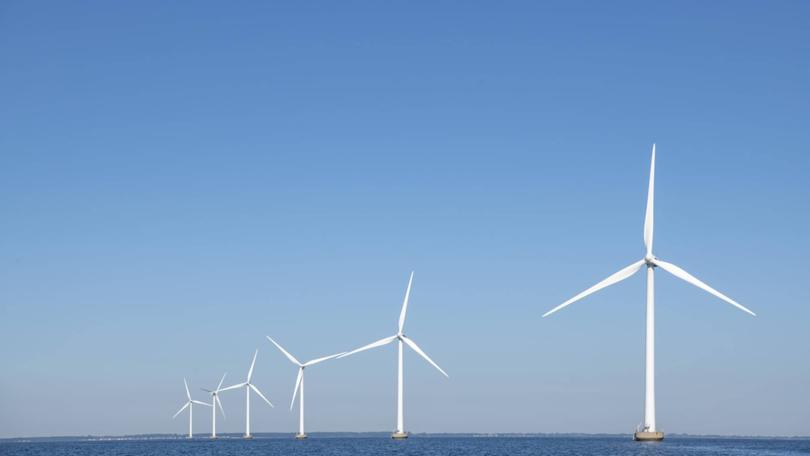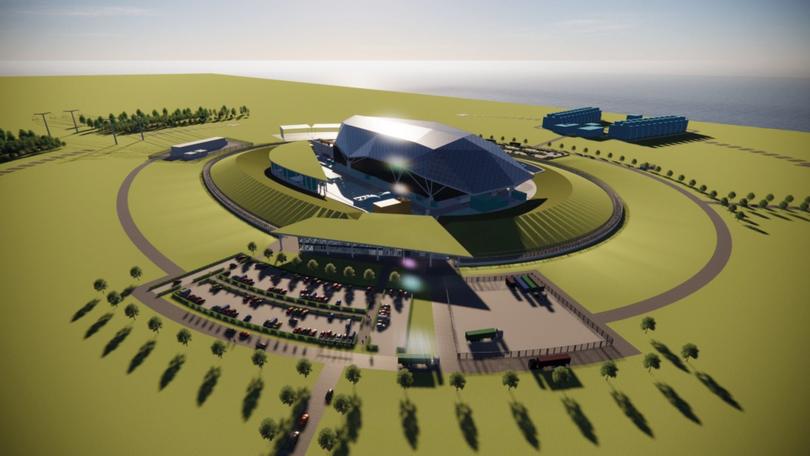Green power: Stop nuclear, wind farms arguments and focus on the science and money, industry urges politicians
Industry leaders have urged the nation’s politicians to centre Australia’s post-election energy decisions on science and economics rather than engage in fractious partisan debate.

Industry leaders have urged the nation’s politicians to centre Australia’s post-election energy decisions on science and economics rather than engage in fractious partisan debate over renewables versus nuclear power.
The calls come amid growing industry disquiet about whether Labor’s 82 per cent renewables by 2030 target is achievable, and a contested push by the Coalition to introduce nuclear power stations into the national energy mix between 2035 and 2050.
“We just say all options should be on the table,” Andrew McKellar, chief executive of the Australian Chamber of Commerce and Industry (ACCI) told The Nightly.
Sign up to The Nightly's newsletters.
Get the first look at the digital newspaper, curated daily stories and breaking headlines delivered to your inbox.
By continuing you agree to our Terms and Privacy Policy.“We’re observing an energy debate at a political level at the moment which is hyper partisan. As we move past the election, we have to see that partisan approach to the energy debate go away,” he said.
“Labor did not invent renewable energy, and the Coalition did not invent nuclear energy. There’s got to be a sensible consideration of the options for the future, which is based on two things — it’s got to be based on the science, and it’s got to be based on the economics.”
His comments reflect those of multiple industry sources who have told The Nightly of concerns that bitter political divides are crowding out sensible debate about national energy needs.
Industry bodies like the ACCI have also expressed growing doubts about whether the Government’s ambitious goal to run the electricity grid on 82 per cent renewables is realistic in the face of rising energy costs.
They have questioned whether it is the best strategy to achieve net zero greenhouse gas emissions by 2050 to mitigate the impact of the global climate crisis.

“From a business point of view, we are very supportive of the goal of reaching net zero by 2050 and we shouldn’t be deviating from that,” said Mr McKellar.
“Inevitably, renewables have got to be a big part of achieving any target in the medium term,” he said, but he added that achieving 82 per cent as early as 2030 would be a “real challenge”.
“Right now, there is a real question mark over whether that is realistic, and we would say we can’t be left in a position where coal-fired generation capacity has to be retired from the system and there’s inadequate options to cover it,” he warned.
“In the light of that, we would say the government needs to be ensuring that it’s got enough fallback options that we can mitigate risk, and that we can ensure that there’s adequate, reliable and affordable supply.”
Mr McKellar argued there was an urgent need to upgrade gas capacity in the system, and to see gas as very important in the short to medium term.
“The fact that we’re now looking at importing liquefied gas from the Middle East into Australia in the coming years, is a policy failure right there,” he said.
He urged future governments to keep an open mind about the nation’s evolving energy requirements and the most cost-effective ways to power the grid.
“We don’t know where we’ll be in 15, 20 years’ time. We don’t know how the cost curves are likely to have shifted. What technologies will have come into play?” he said.

“There’s a lot of investment that’s got to go into CCS [carbon, capture and storage] technology. Who knows what will happen in terms of the economics of hydrogen as a store of energy,” he continued.
“We would say there shouldn’t be legislative barriers to nuclear, whether or not nuclear becomes cost effective. That really has to be left up to the economics of the market.”
The Federal government, under the guidance of Climate Change and Energy Minister Chris Bowen, insists Australia is still on track to reaching its renewables goals as well as its target of reducing emissions by 43 per cent by 2030.
Last week the Clean Energy Council, Australia’s renewable energy association, revealed the final quarter of 2024 saw a record renewable energy investment, keeping pace with the 2030 deadline.
“Australia has seen its best year for large-scale renewable energy investment since 2018, finishing the year strong in 2024 with $9 billion in total capital investment committed to projects that will help Aussies keep the lights on,” it said in a statement.
But the country is also facing outside pressure to fall in line with a global nuclear renaissance.

Australia should accelerate its transition out of coal power and embrace nuclear, Goldy Hyder, the head of the Business Council of Canada, said on the sidelines of the Australia-Canada Economic Leadership Forum this week, reported the AFR.
Shadow energy minister Ted O’Brien, said the Albanese Government’s energy policy was taking Australia “down a path of radical experiment”.
He recently returned from South Korea, which for the first time in 2024 generated more electricity from nuclear energy than coal and natural gas. It was the latest stop of a fact-finding mission spanning the nuclear industries of ten different nations.
“We’re determined to ensure we’re learning from countries which are decarbonising more successfully than Australia, and that means they are basically keeping energy affordable,” he told The Nightly in an exclusive interview.
“I think the single biggest lesson was the importance of a balanced energy mix and the role played by base load power,” he said. “As coal retires from the system, it should be nuclear energy.”
South Korea could be one of several “friends and allies” including the US, Canada and the UK that Australia could rely on for assisting its own nascent nuclear industry, he said.
Mr O’Brien argued the key to overcoming public resistance to nuclear energy was to be “completely open and transparent” about policy intentions.
“You need to not just be open with the Australian people in the lead up to an election, but also after,” he said.
Despite the ferocity of Australia’s nuclear debate, he believes pragmatism to deliver a “cheap, clean and consistent energy system” will ultimately overcome partisan divides.
“Politics is never easy, and the Coalition is not going down this path of a balanced energy mix, including nuclear, because it’s an easy pathway, but rather, because it’s the right pathway,” he said.
“I am supremely confident that Australia’s adoption of nuclear energy will be a will come with bipartisan support. It’s a matter of time.”

